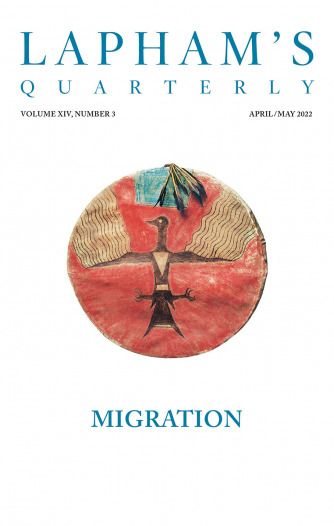Hence, filled with holy strength, let Agni, Soma, and Varuna, the Press-stone, and the Altar
And Grass, and glowing Fuel banish Fever. Let hateful things stay at a distance.
And you yourself who makes all men yellow, consuming them with burning heat like Agni,
You, Fever, then be weak and ineffective. Pass hence into the realms below or vanish.
Endowed with universal power, send Fever downward, far away,
The spotty, like red-colored dust, sprung from a spotty ancestor.
When I have paid obeisance to Fever, I send him downward forth.
So let Sakambhara’s boxer go again to the Mahavrishas.
His mansions are the Mujavans, and the Mahavrishas his home.
You, Fever, ever since your birth has lived among the Bahlikas.
Fever, snake, limbless one, speak out! Keep yourself far away from us.
Seek a wanton Dasi girl and strike her with your thunderbolt.
Go, Fever, to the Mujavans, or, farther, to the Bahlikas.
Seek a lascivious Sudra girl and seem to shake her through and through.
Go hence and eat your kinsmen the Mahavrishas and Mujavans.
These or those foreign regions we proclaim to Fever for his home.
In a strange land you rejoice not; subdued, you will be kind to us.
Fever is eager to depart, and to the Bahlikas will go.
Since you, now cold, now burning hot, with cough besides, has made us shake,
Terrible, Fever, are your darts: forbear to injure us with these.
Take none of these to be your friends, Cough or Consumption or Decline.
Never come thence again to us, O Fever, thus I counsel you.
Go, Fever, with Consumption, your brother, and with your sister, Cough.
And with your nephew, Herpes, go away to that alien folk.
Chase Fever, whether cold or hot, brought by the summer or the rains,
Tertian, intermittent, or autumnal, or continual.
We to Gandharis, Mujavans, to Angas and to Magadhas,
Hand over Fever as it were a servant and a thing of price.
From the Atharvaveda. The last of the four collections of ancient Hindu scriptures known as the Vedas, the Atharvaveda consists of more than seven hundred spells, curses, and charms concerning matters of everyday life. This is one of four hymns in the Veda dedicated to the cure of an ailment called takman (fever), which has been identified as malaria on the basis of its seasonality and its characteristic intervals of fever and chills. While “witchcraft and healing are serious businesses,” wrote the translator Charles Rockwell Lanman in 1905, “I presume that the idea of sending the fever as a choice present to one’s neighbors is intended to be jocose.”
Back to Issue


